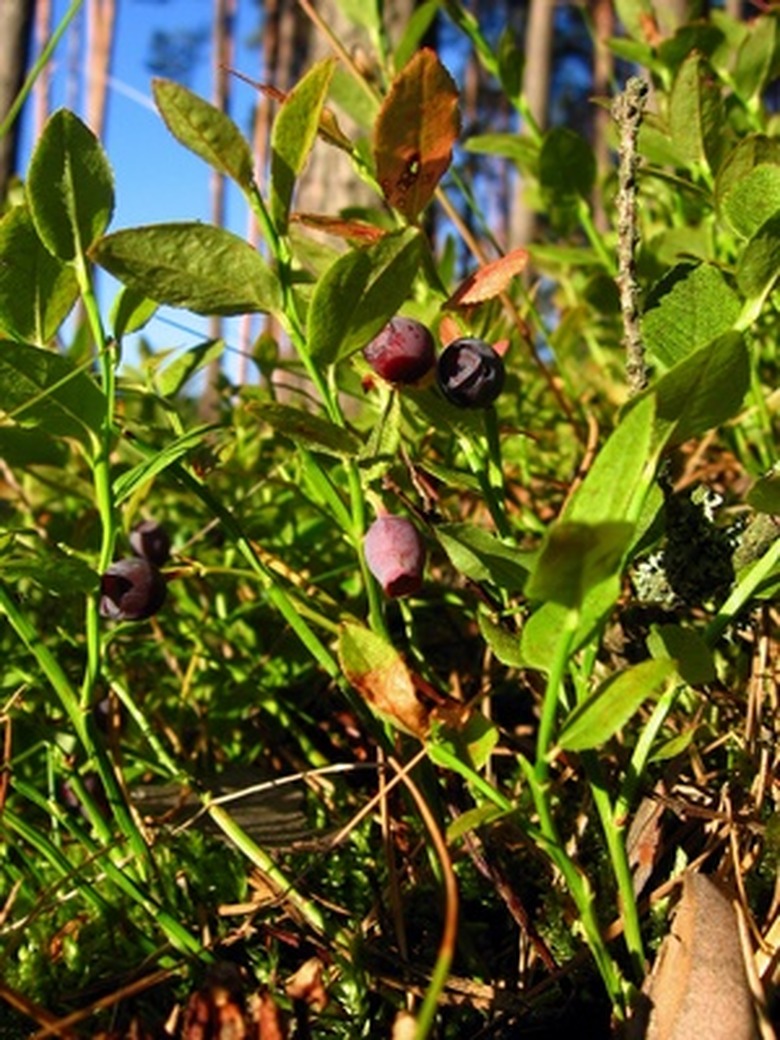How To Grow Bilberry
Things Needed
- Flat
- Potting soil
- Water
- Pots
- Peat moss
- Mulch with pine straw
Bilberry (Vaccinium myrtillus) grows 6 to 12 inches tall. This small shrub produces edible berries and leaves that, when dried, treat a variety of illnesses. Bilberry plants are closely related to blueberry and huckleberry. They are hardy down to USDA zone 3, which means they grow throughout the United States. In order to grow these plants you must know how to create the right environment for them.
Step 1
Obtain bilberry seeds in late winter. Place them on a flat and cover them with lime-free potting soil. Keep the medium warm and moist, but not soaked, as the bilberries start to grow.
- Bilberry (Vaccinium myrtillus) grows 6 to 12 inches tall.
- Keep the medium warm and moist, but not soaked, as the bilberries start to grow.
Step 2
Transplant the bilberry seedlings into individual pots when they are about 2 inches tall. Place them in a lightly shaded location and keep them watered over the winter.
Step 3
Choose a site to plant the bilberry plants outdoors in spring or early summer, after the danger of frost passes. Look for a spot with full sun or light shade and well-drained acidic soil with a pH between 4.5 and 6.
Step 4
Amend the soil in the chosen site to prepare it for the bilberry plants. Mix a generous amount of peat moss and mulch with pine straw into the soil to keep the pH low and increase drainage. Plant the bilberries so that the top of the root ball is even with soil level.
- Transplant the bilberry seedlings into individual pots when they are about 2 inches tall.
- Mix a generous amount of peat moss and mulch with pine straw into the soil to keep the pH low and increase drainage.
Step 5
Water the plant, keeping the soil moist but not soaked. Once it takes root and starts growing vigorously on its own it should be able to survive on rainwater. During droughts, however, you may want to provide it with some extra water as it is not drought-tolerant.
Tip
Bilberry plants are self-fertilizing and do not require fertilizer to flourish.
